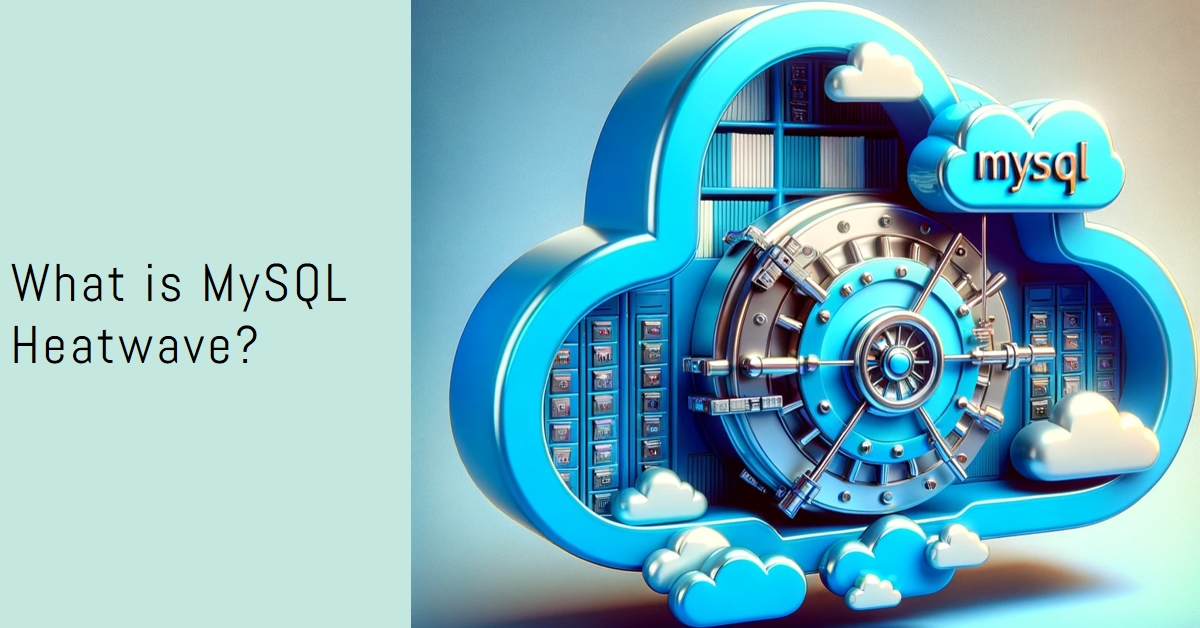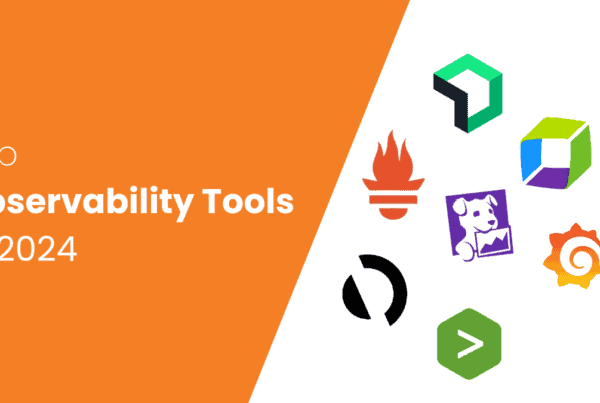
Technology keeps getting better, and one important part of it is how we store and organize information in something called a database. Think of a database like a huge electronic filing cabinet where we keep important stuff.
This is super important because it helps businesses and other groups keep track of things, like customer info or sales numbers. It’s like having a super organized system to find and use information when we need it.
As technology gets fancier, these databases keep getting bigger to handle even more information. This makes them really helpful for creating new things and making our digital world work better.
Now, there’s one technology called MySQL Heatwave that’s getting a lot of attention. It’s a new and groundbreaking way to manage databases. But what exactly is it, and how does it compare to other similar technologies? Let’s take a closer look and find out.
What is MySQL Heatwave?
MySQL Heatwave is a special kind of database service that’s managed for you. It uses something called the HeatWave in-memory query accelerator to do some cool things.
What makes it unique is that it’s the only service in the cloud that lets you do a bunch of stuff all in one place. You can do regular database stuff, like keeping track of data and doing real-time analytics (which is like quickly studying data), and even use machine learning – all using the same MySQL Database. This is helpful because it gets rid of problems like things taking too long or costing too much money when moving data around.
With MySQL HeatWave Lakehouse, you can look at a huge amount of data that’s stored in a special way, even if it’s not in the MySQL Database itself. With HeatWave AutoML, you can create, teach, use, and explain machine learning models without needing a separate service just for that. It’s like having all these useful tools in one place!
Let me break it down for you…
Imagine you have a super smart computer notebook. You use it to keep all your important stuff organized, like recipes, birthdays, and video game scores. This notebook is like a helpful friend because it keeps everything neat and easy to find.
Now, big companies and groups also have their super-sized electronic notebooks, called databases. These help them keep track of lots of important things, like what people buy from a store or all the medical info in a hospital.
The cool part is that as computers get even better, these electronic notebooks (databases) can handle even more info. So, companies and groups can use them to make new things, serve customers better, and do their work faster. That’s why databases and tech improvements matter a lot – they help us be smarter and quicker in our digital world.
Pros and Cons of MySQL Heatwave
MySQL Heatwave, like any technology, comes with its own set of pros and cons. Here’s a breakdown of the advantages and disadvantages:
Pros:
- Works Fast: MySQL Heatwave is great at handling lots of data quickly. It’s like a super-speedy data helper.
- Affordable: It doesn’t cost a ton of money, so it’s a good deal if you want high-performance data handling.
- Easy to Use: People find it easy to work with. You don’t need lots of fancy skills or extra tools to use it.
- Works Well with Other MySQL Stuff: If you’re already using other MySQL tools, Heatwave fits right in. It plays nicely with the rest of the gang.
- Scales Up: You can start small and make it handle more data as your needs grow. It’s flexible that way.
Cons:
- Might Not Work with Everything: It may not be compatible with all other databases, which could be a problem if you need to mix and match.
- Takes Some Learning: Even though it’s easy, you might still need to learn how to use it if you’re new to databases.
- Needs Good Computer Stuff: To make it work well, you might need some powerful computers, and that can cost money.
- Competition is Strong: There are other tools out there that do similar things, and they might be better for some jobs.
- Watch Out for Security: Like with any online service, you need to be careful about keeping your data safe when using MySQL Heatwave.
Major Competitors of MySQL Heatwave
MySQL Heatwave has some tough competition from other database services. Here are some of its top rivals:
Google Cloud BigQuery
This is like a super smart data warehouse by Google. It helps quickly analyze big piles of data and works really well with other Google services, making it great for companies using Google’s tools. It can handle both small and huge sets of data and is good for stuff like business reports and learning from data.
Amazon Redshift
It’s Amazon’s data warehouse solution. It’s known for being super fast at handling complex data and has different pricing options to suit different needs. It works seamlessly with other Amazon services, making it solid for data stuff like data warehousing, data analytics, and business reports.
IBM Db2
IBM’s special database system is super secure and can handle different types of data, from neat and organized to messy. You can use it on your own computers or in the cloud, which is great for businesses with different tech setups. It’s used a lot for traditional data jobs, like keeping track of transactions and data warehousing.
Snowflake
Snowflake is a cloud-based data warehouse that’s famous for its clever way of separating storage and computer work. This makes it flexible and cost-effective. It’s also good for sharing data between different groups and has strong security. People use it for data warehousing, data sharing, and fancy data analysis.
Teradata Vantage
This is like an all-in-one platform for data analytics, mixing data warehousing, data lake stuff, and machine learning. It’s great at managing lots of data jobs and is used for big data tasks, like complex analytics, data warehousing, and understanding customers.
These competitors are all trying to be the best at handling data for businesses, and they each have their own unique features and strengths.
How does MySQL Heatwave compare to its competitors?
By using details available on G2 we compared MySQL Heatwave to its competitors, there are several key factors to consider:
MySQL Heatwave vs. Google Cloud BigQuery
- Architecture: MySQL Heatwave is an extension of the MySQL Database Service, while Google Cloud BigQuery is a separate data warehousing platform.
- Scalability: BigQuery is highly scalable and optimized for complex analytics, whereas Heatwave is more suitable for operational workloads.
- Query Language: Both support SQL, but BigQuery excels in complex analytical queries.
- Cost Model: BigQuery operates on a pay-as-you-go model, while Heatwave’s pricing is typically bundled with MySQL.
- Integration: BigQuery integrates seamlessly with Google Cloud services, whereas Heatwave is more integrated with Oracle Cloud.
- Use Cases: BigQuery is best for analytics, while Heatwave is better for operational tasks.
MySQL Heatwave vs. Amazon Redshift
- Architecture: Redshift is a dedicated columnar data warehousing platform, while Heatwave is part of the MySQL Database Service.
- Performance: Redshift excels in high-performance analytics, while Heatwave is better suited for operational tasks.
- Scalability: Redshift offers elastic scaling, while Heatwave may have scalability limitations.
- Cost Model: Redshift offers flexible pricing models, whereas Heatwave’s pricing is typically included with MySQL.
- Integration: Redshift integrates well with AWS services, while Heatwave is more tied to Oracle Cloud.
- Use Cases: Redshift is ideal for data warehousing and analytics, while Heatwave is better for operational workloads.
MySQL Heatwave vs. IBM Db2
- Provider: Db2 is provided by IBM, while Heatwave is part of Oracle MySQL Database Service.
- Architecture: Db2 is a traditional relational database, while Heatwave provides in-database analytics.
- Scalability: Db2 can scale but may require manual tuning, while Heatwave is primarily suited for smaller-scale analytics.
- Query Language: Both support SQL, with Heatwave excelling in certain analytical queries.
- Use Cases: Db2 suits traditional relational applications and data warehousing, while Heatwave is better for operational tasks with some analytics.
MySQL Heatwave vs. Snowflake
- Architecture: Snowflake is a cloud-native data warehousing platform, while Heatwave is an extension of MySQL.
- Scalability: Snowflake offers elastic scaling and advanced analytics, while Heatwave may not scale as seamlessly for large datasets.
- Query Language: Both support SQL, but Snowflake is optimized for complex analytics.
- Cost Model: Snowflake follows a pay-as-you-go model, while Heatwave’s pricing is typically bundled with MySQL.
- Use Cases: Snowflake is suitable for data warehousing, data sharing, and advanced analytics, while Heatwave is better for operational tasks.
MySQL Heatwave vs. Teradata Vantage
- Provider: Teradata Vantage is provided by Teradata, while Heatwave is part of Oracle MySQL Database Service.
- Architecture: Vantage is a hybrid multi-cloud analytics platform, while Heatwave offers in-database analytics.
- Scalability: Vantage is designed for large-scale data processing and analytics, while Heatwave may not scale as seamlessly for very large datasets.
- Query Language: Both support SQL, but Vantage offers advanced workload management.
- Use Cases: Vantage suits complex analytics, data warehousing, and customer analytics, while Heatwave is better for operational tasks within the MySQL environment.
Conclusion: The outcome of these comparisons
Here are the key points from the comparison:
- Performance: MySQL Heatwave is built to be fast. It can handle big chunks of data quickly because it uses special computer tricks. Users say it’s super speedy.
- Cost-Effectiveness: It’s also not too expensive. You get a lot of performance for the money you spend. Users think it’s a good deal.
- Ease of Use: It’s easy to work with. You can analyze data without needing extra tools. Many organizations find it handy for this reason.
To sum it up, MySQL HeatWave is a strong tool with special benefits compared to others. It’s really fast, not too pricey, and easy to use, which makes it appealing to lots of groups. But remember, before you decide, think about what you need and your situation.
References:
- https://www.g2.com/products/mysql-heatwave/competitors/alternatives
- https://www.oracle.com/mysql/heatwave/
- https://www.trustradius.com/reviews/mysql-heatwave-2022-03-01-10-45-00
- https://www.mysql.com/products/mysqlheatwave/
- https://www.trustradius.com/products/mysql-heatwave/reviews?qs=pros-and-cons



